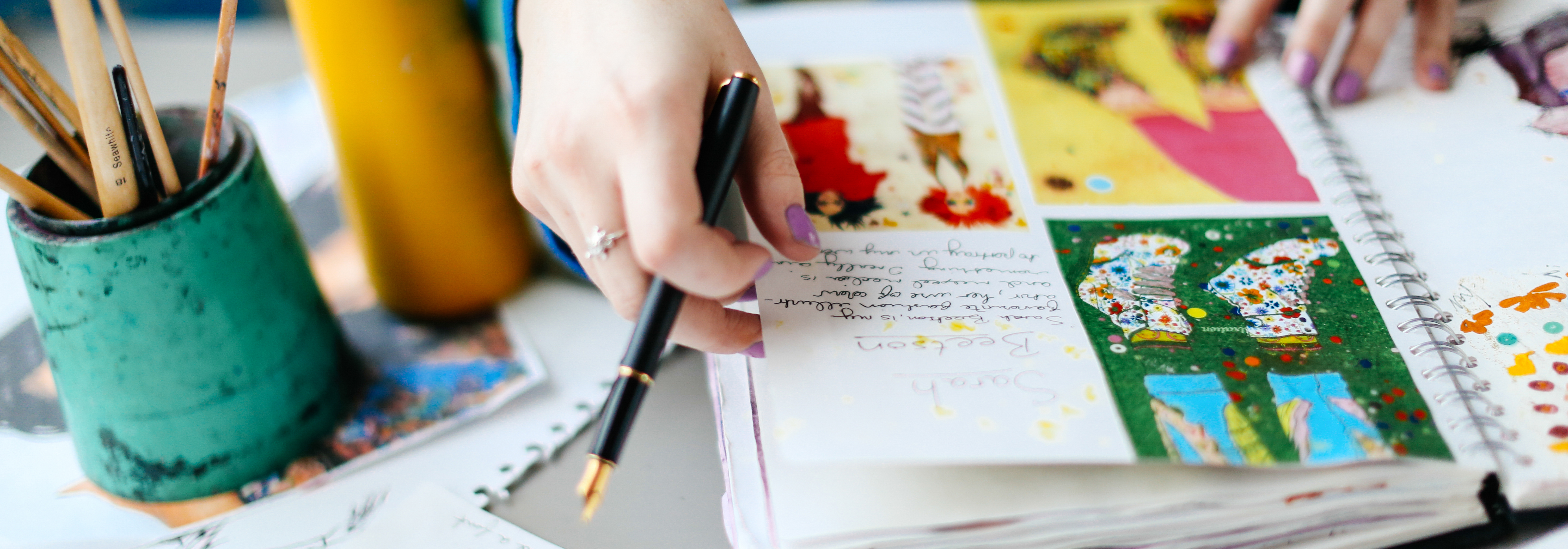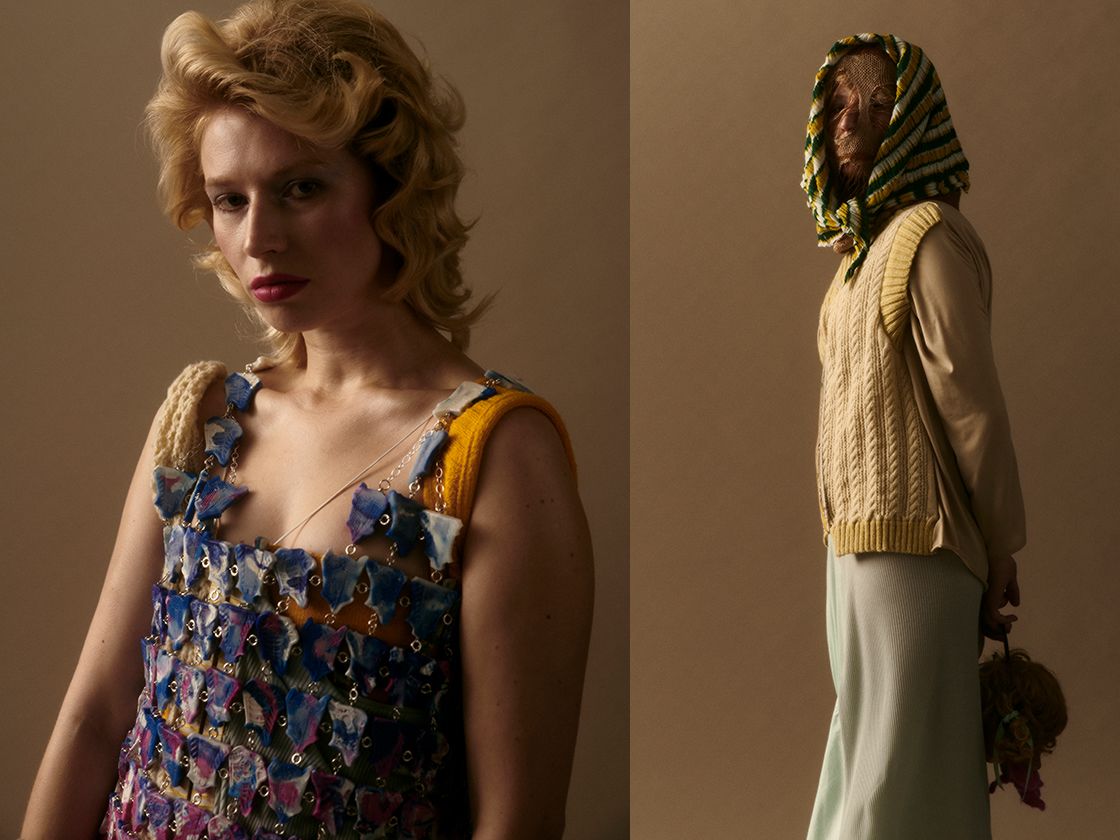The coronavirus outbreak has proved to be a big challenge for all the creatives staying at home. Even though activities like painting, sewing and exercising can take our minds away from all the chaos happening outside, spending weeks and even months away from our loved ones and our friends will, undeniably, make us feel down and unmotivated at some point.
In order to better understand how this unprecedented situation may affect our mental health and what can we do to look after our wellbeing, we have spoken to two Psychology experts at LCF: Dr Jekaterina Rogaten, course leader for MSc Applied Psychology in Fashion, and Dr Ameerah Khadaroo, lecturer at BSc (Hons) Psychology of Fashion.
Introverts vs Extroverts
“For some people, maintaining social distancing and isolation is easier than for others,” says Dr Jekaterina Rogaten, a reality that many of us have come face to face with in the last few weeks. For the introverts, staying at home already comes naturally for them and according to Jekaterina this time in lockdown won’t affect them as much: “Those who share this type of personality don’t see the social distancing as a big deal and actually might find it rather enjoyable. They’re the ones who like spending time alone, have hobbies such as gaming or crafts and would, in general, prefer to socialise with a small group of friends rather than attending big parties.”
However, considering we’re now being continuously bombarded with messages that focus on the difficulties of being isolated, these stories can have a big impact on the introverts’ mental wellbeing, as Jekaterina states: “This dissonance between how they feel and what the rest of the world tells them they should feel may lead to a feeling of inadequacy. If you are an introvert it’s important that you understand there is nothing wrong with you! You have been preparing for a lockdown like this your whole life — your individual predispositions and set of hobbies will allow you to enjoy this new freedom of being alone that was lacking in our hectic world.”
On the other side, for those who enjoy being outdoors and thrive with their agenda-packed lives, the way to confront a situation like the one we’re currently facing will be completely different. “If you’re an outgoing individual who prefers spending time with other people rather than by yourself and have hobbies which involve being out and about, then this lockdown will feel like a disaster, because you’ve lost your freedom,” says Jekaterina.

She also suggests that the extroverts, who love being surrounded by their friends and peers at all times and crave physical connection, will most likely experience different stages of grief during the lockdown, as she explains:
Denial: It’s not unusual to respond to the intense and often sudden feelings by pretending the loss or change isn’t happening. However, the longer you deny the change the more negative suppressed emotions will accumulate.
Anger: It can express itself in many different intensities, like general bitterness or resentment, as well as short-temperedness.
Bargaining: This is an attempt to regain control or feeling like you can influence an outcome of a situation that is out of your control. In this stage you may find yourself creating a lot of “what if” and “if only” statements.
Depression: Whereas anger and bargaining can feel very “active,” depression would feel like a “quiet” stage of grief. By this point, you may be able to embrace the inevitable uncontrollability of the situation and work through the emotional rollercoaster, one emotion at a time.
Acceptance: Is not a happy state but rather a state of calm. It does not mean that there is no grief, but there is an understanding that you have developed of this new situation. Look to acceptance as a way to see that there may be more good days than bad days. There may still be bad days, and that’s OK.
At whatever stage of the grief process you are in right now, remember it will not last forever. If you concentrate on things you can control, like new hobbies or new learning opportunities, you will eventually regain a new sense of normality.
Time is your best ally
In the end, it doesn’t matter whether you are an introvert or an extrovert; going through a period of isolation can be challenging for all in many different ways. As Dr Ameerah Khadaroo reminds us, “the whole nation including us, the LCF community, are having to face a rather difficult situation full of uncertainties.”
In order to protect ourselves we know we need to engage in social distancing practices, but what can we do to safeguard our individual wellbeing? “It is essential that you take time to comprehend the current situation,” says Ameerah. For the BSc Psychology of Fashion lecturer, maintaining a positive approach can become one of your biggest strengths, as well as making the most of the very precious tool that you now have in your hands: time.

For students, creatives, professional and anyone out there searching for better or new ways to look after their mental health during lockdown, these are some of the activities that Ameerah recommends:
Engage in self-reflection and take some time to introspect and know yourself better.
Take more control over your quality of life for healthier practices.
Boost your social well-being by connecting with your family and friends through social media, especially those you lost touch with!
Catch up with your studies to feel more confident and in control of your academic progress.
Look after your physical and mental health by exercising on a more regular basis.
Embrace isolation as valuable ‘me-time’ to work on yourself and feel more autonomous.
Show more self-compassion and be kind to yourself; listen to your ‘inner coach’ and minimise negative critical self-talk in these challenging times.
Indeed, it is a very difficult phase that we are all going through, but we will eventually overcome this, TOGETHER.
- Keep up to date with the UAL Coronavirus page.
- Find out more about BSc (Hons) Psychology of Fashion and MSc Applied Psychology in Fashion.
- Explore other undergraduate and postgraduate courses at LCF.




